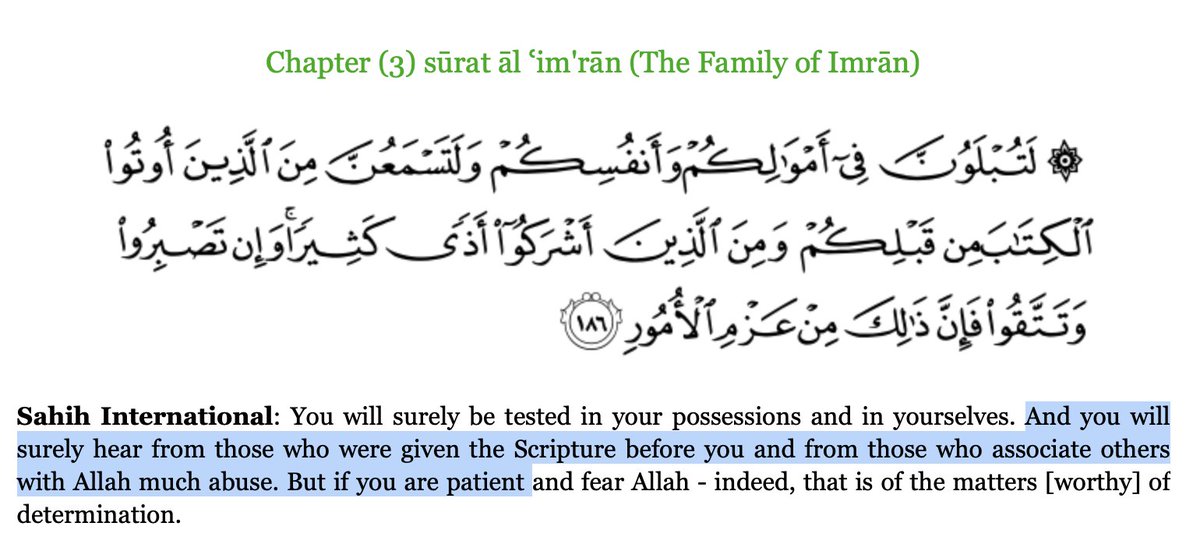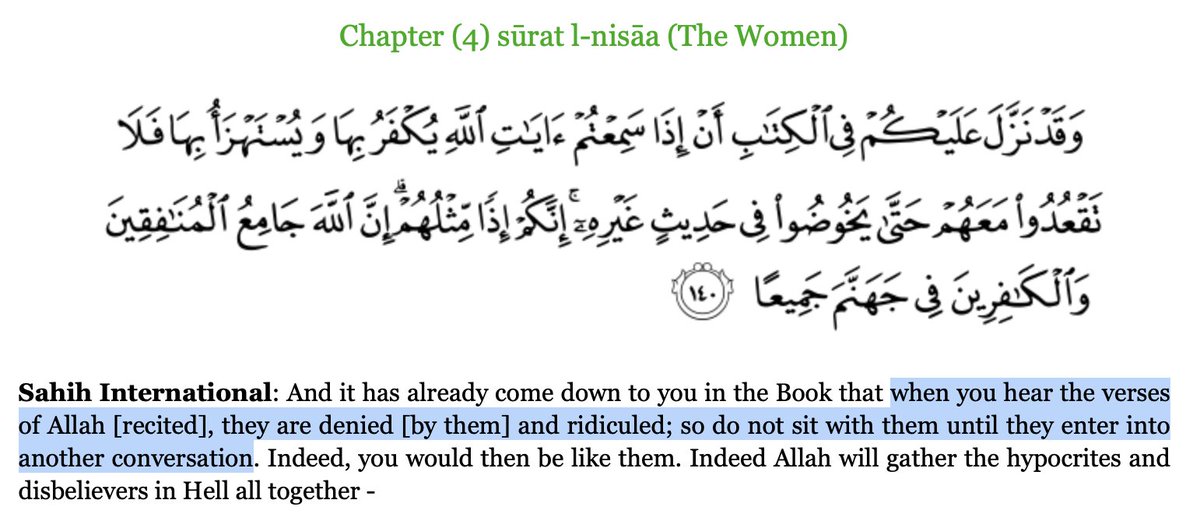
Many #Muslims want to see (even enforce) a world without any #blasphemy against Islam, any offense.
But that is NOT going to happen - as the #Quran tells us in 3:186. It rather tells that Muslims will SURELY hear "much abuse" from others.
In return, it just advises #patience.
But that is NOT going to happen - as the #Quran tells us in 3:186. It rather tells that Muslims will SURELY hear "much abuse" from others.
In return, it just advises #patience.

And how this #patience looks like?
The #Quran specifies that in 6:68 and then 4:140. It just says "do not sit with" those who mock your faith.
Today, perhaps it could also mean don't buy their publications, don't follow them on social media.
No killing. Not even censorship.
The #Quran specifies that in 6:68 and then 4:140. It just says "do not sit with" those who mock your faith.
Today, perhaps it could also mean don't buy their publications, don't follow them on social media.
No killing. Not even censorship.

In other words, as I noted before (as in the linked piece) there is absolutely no basis in the Qur'an for attacking blasphemers, even silencing them.
The problem, as in the case of apostasy, only comes from post-Quranic texts - all open to doubt & debate.
nytimes.com/2015/01/14/opi…
The problem, as in the case of apostasy, only comes from post-Quranic texts - all open to doubt & debate.
nytimes.com/2015/01/14/opi…
The key post-Quranic texts relevant to #blasphemy are reports about the killing of certain "satirical #poets" by the Prophet's orders.
But even a careful reading of these texts suggests that the matter then was not mere satire but active enmity in a context of war for survival.
But even a careful reading of these texts suggests that the matter then was not mere satire but active enmity in a context of war for survival.
The lesson is what I argue in much more detail in a chapter on #blasphemy in my forthcoming book, "Reopening Muslim Minds: A Return to Reason, Freedom, and Tolerance":
We Muslims should give up "coercive power" to make people respect #Islam - which only makes them disrespect it.
We Muslims should give up "coercive power" to make people respect #Islam - which only makes them disrespect it.
• • •
Missing some Tweet in this thread? You can try to
force a refresh


